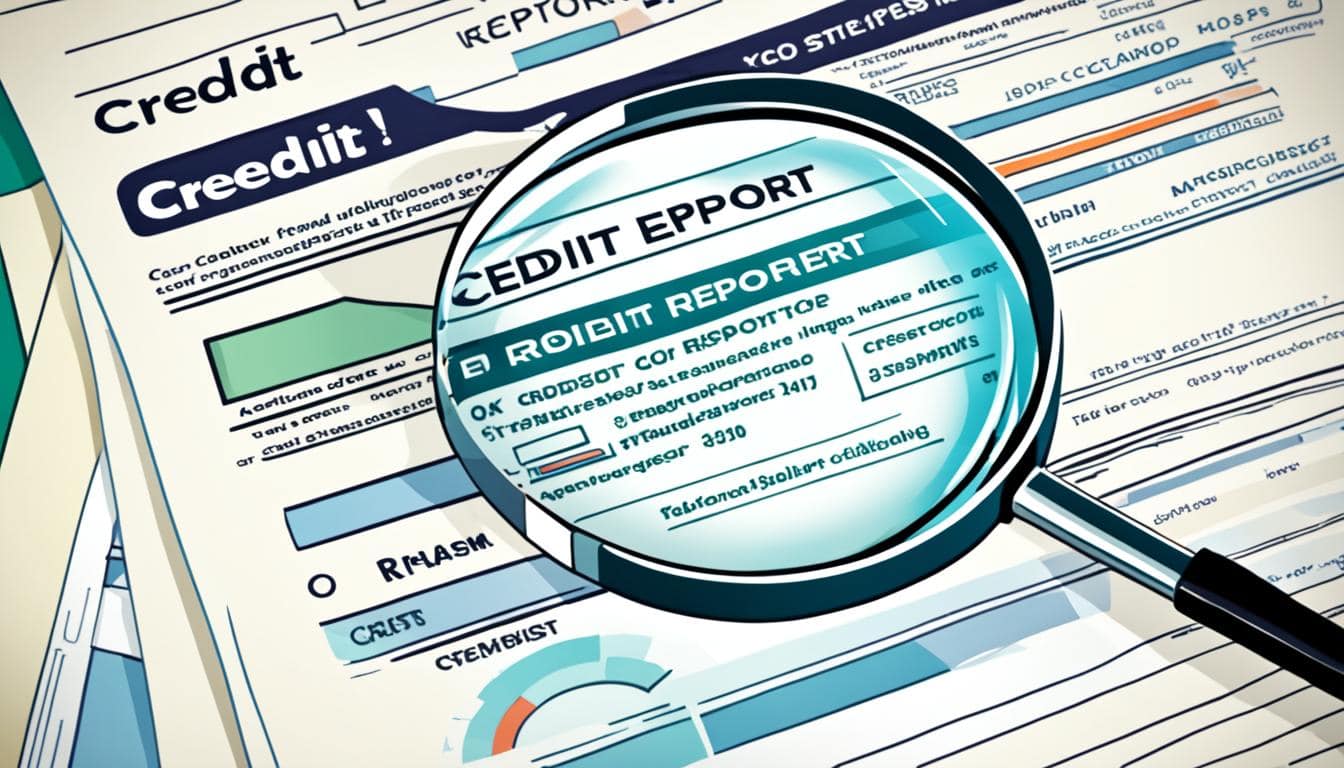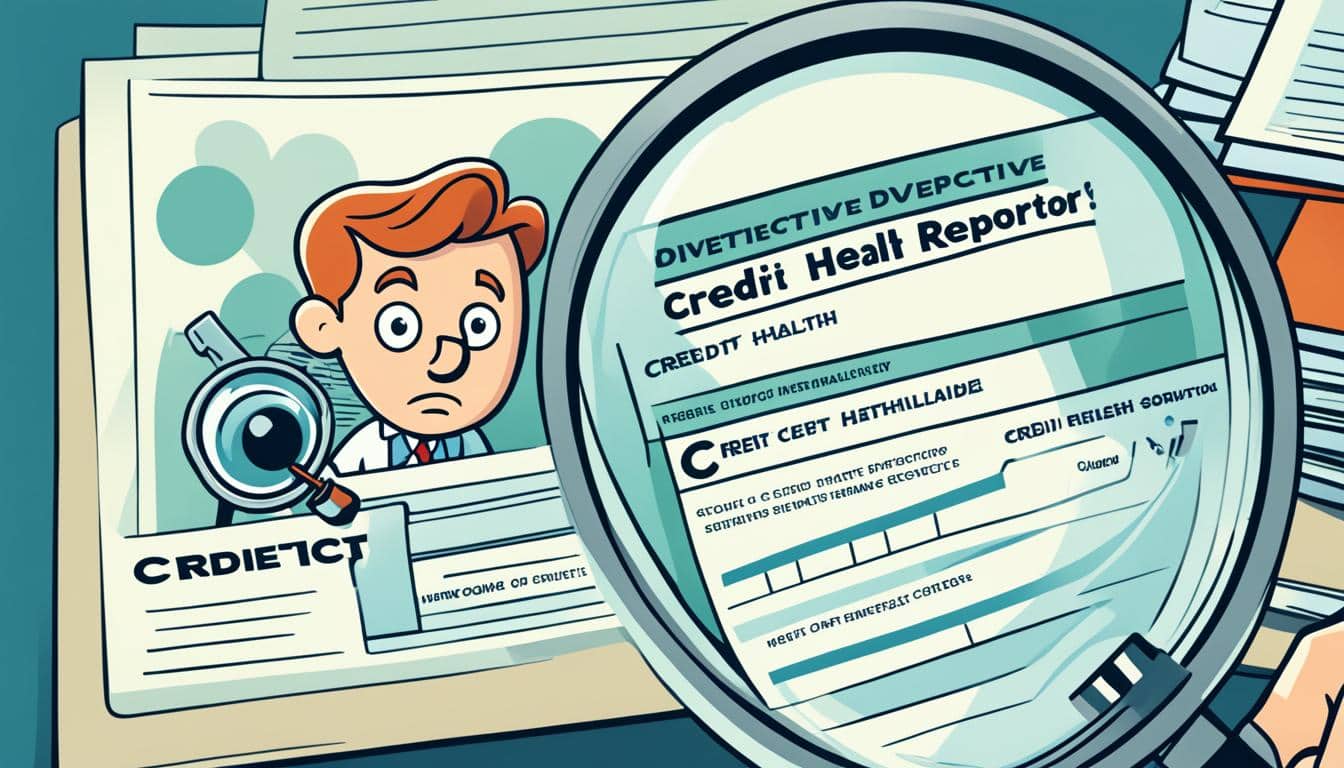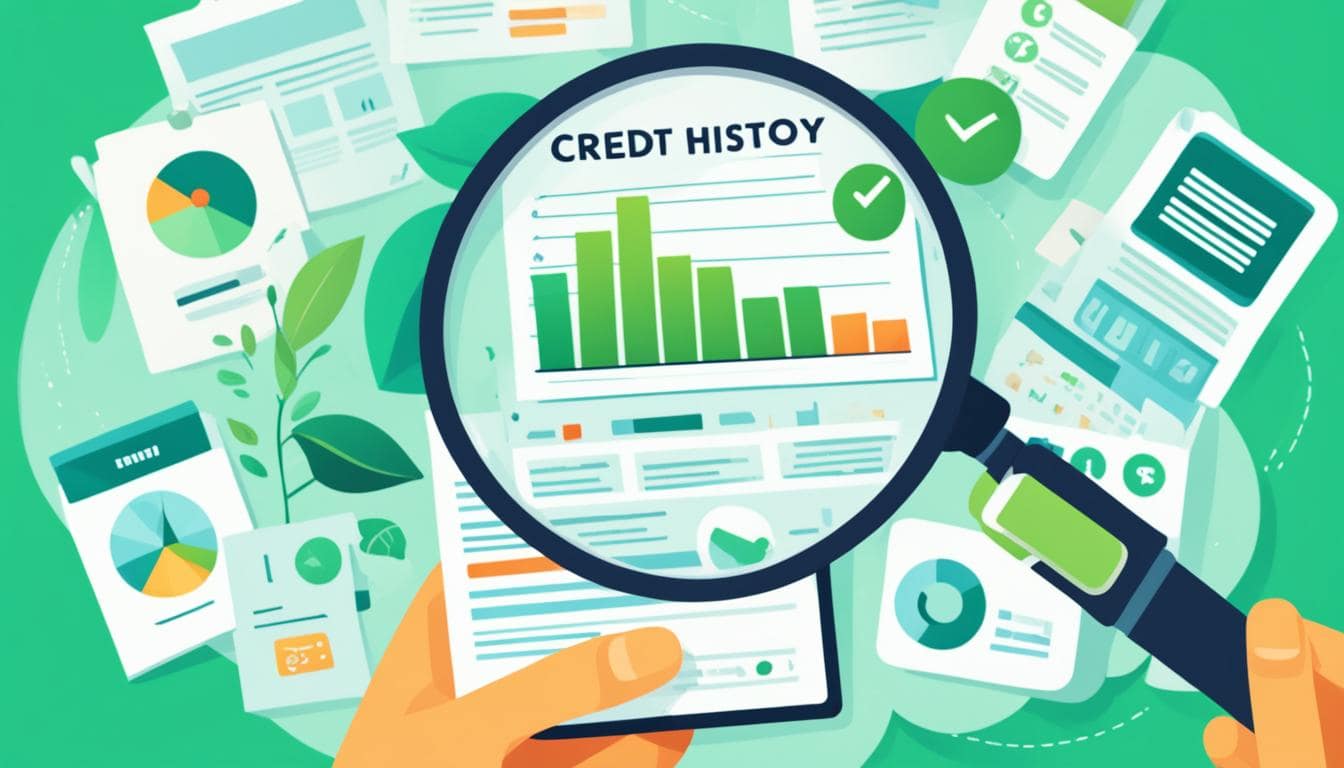Table of Contents (Click To Jump)
Imagine this: two major credit bureaus reported an overdue $38 water bill from four years ago. This tiny amount hugely dropped my credit score. During my five-year divorce mess, I found my credit score crying for help. It was a mystery that could stump even Sherlock Holmes.
It was time to become a detective in the world of Credit Monitoring. Think of it like using a magnifying glass to examine every small detail. In the world of credit, small things can make a big difference. Forgotten bills and hard inquiries can either help or hurt your credit health.
I discovered an unnoticed unpaid balance and acted like a detective. After paying off the debt, my Equifax score jumped nearly 80 points to 780. Going through my credit report was like solving a complex puzzle. It showed how payment history, debt, and credit use combine to shape your credit score.
Key Takeaways
- Unnoticed bills, even small ones, can tank your credit score.
- Timely addressing discrepancies can significantly improve your credit.
- Credit monitoring is your magnifying glass to untangle financial mysteries.
- Credit bureaus can take 30 to 45 days to resolve disputes.
- Each credit report includes ways to start disputes online or via phone.
- Invest in regular Credit Report Analysis to safeguard your credit health.
- Be proactive in monitoring to avoid unpleasant surprises.
Why Your Credit Score Matters
Let’s face it, figuring out credit scores is tough. It’s complex, like solving a Rubik’s Cube with your eyes shut. Yet, grasping the credit score importance is key to financial peace.
Why does it matter so much? Well, a great credit score means access to financial opportunities galore. Imagine getting loans with incredibly interest rates. Or being top choice for apartments that are hard to get into.
The Impact of a Good Credit Score
A solid credit score makes others see you as creditworthy. Here’s the upside:
- More likely to get loan approval. Banks view you as a safe bet.
- You’ll get lower interest rates on big loans, which saves you money. For instance, with a score of 750 or higher, you could save up to $86,065 on a $350,000 mortgage than having a score of 630-689.
- Better financial opportunities are open to you. This means great credit card offers and prime rental deals come your way.
Problems Caused by a Poor Credit Score
A poor credit score can be tough. It’s like missing out while others get ahead. Here’s the downside:
- Higher interest rates on loans, meaning you pay more. For example, on a $10,000 personal loan over three years, a score of 720+ means you save $885 in interest over having a score of 630-689.
- Harder to get loans. Banks might avoid you, making you feel left out.
- You miss out on financial opportunities. The good deals go by while you’re stuck.
In short, a good credit score is vital for your financial wellbeing. To keep a high score, just pay your bills on time and manage your credit wisely. Soon, you could enjoy financial stability and happiness.
Understanding Credit Monitoring
Credit monitoring acts like a guardian, always alert. It buzzes whenever there’s activity with my credit. It’s like having security that watches over my financial peace. These services use smart tools and apps. They check on credits and scores without missing a beat.
What is Credit Monitoring?
Imagine having a detective for your finances, always ready. Credit monitoring watches over your reports and alerts you of suspicious actions. With scams and identity theft affecting many, such surveillance is crucial.
Credit Monitoring Tools and Apps
Today, we have many digital tools for keeping an eye on finances. Brands like IdentityForce and Experian offer robust features. They keep track of your credit through all major bureaus and alert you of changes. There are both free and paid services, with prices varying greatly.
Benefits of Credit Monitoring Services
Credit monitoring services are more than just vigilant eyes. They alert you about mistakes and suspicious activities in your report. While they can’t stop certain types of fraud, they spare you from poring over reports. Also, checking your report yourself won’t hurt your credit score.
Nowadays, many financial institutions provide credit insights without harming your score. You can even access free weekly reports from AnnualCreditReport.com. In times of frequent data breaches, having this protection is essential for peace of mind.
How to Choose the Best Credit Monitoring Service
Choosing the best credit monitoring service is like picking avocados. You look for the right firmness, but not too hard, with no bruises. But when it comes to credit monitoring, it gets tricky.

To pick wisely, focus on the essential monitoring features. Let’s break down what you should expect.
Key Features to Look For
When picking a credit monitoring service, focus on key features:
- Three-Bureau Monitoring: Watches your credit across Experian, Equifax, and TransUnion.
- Real-Time Alerts: Sends immediate notifications of any strange activities.
- Credit Score Access: Offers regular credit score updates. CreditWise from Capital One provides VantageScore access, while Experian’s free service is great for FICO Scores.
- Identity Theft Insurance: Some services like IdentityForce offer up to $1 million in coverage. Aura offers up to $5 million for families.
- Dark Web Scanning: Searches the dark web for your personal info.
Free vs. Premium Credit Monitoring Plans
Free services are budget-friendly credit tools. For example, Experian’s free service is highly regarded. Premium plans like Aura’s come with more features. Prices range from $9 to $34.90 a month, with discounts for yearly payments.
Premium options often provide complete protection. This includes monitoring all three bureaus, extensive insurance, and quick alerts. For example, Aura gives alerts up to 250x faster than average.
Finding the right service is about balancing cost and features. It’s similar to searching for the perfect jeans. It takes time but is worth it.
Credit Monitoring: Be the Sherlock Holmes of Your Credit Score!
I began to deeply explore credit monitoring, making it my key priority. Credit Accountability guided me as I reviewed unpaid bills and delinquent accounts. This included a pesky $38 water bill that appeared in the reports of two major credit bureaus. My goal was precise tracking of every irregularity.
However, this journey came with hurdles. For instance, Equifax responded to an online dispute after 45 days. And once, Experian verified an item as accurate just 24 hours after my dispute. But removing these disputed accounts boosted my Equifax score by nearly 80 points. Through careful review of each bureau’s responses, I saw the importance of professional Credit Monitoring Expertise.
Online disputes proved less effective than calling or mailing the credit bureaus. These methods led to quick improvements in my credit scores. With each dispute I resolved, the process became clearer. Thorough Credit Detective Work was crucial for effective Debt Management Solutions.
Reaching out to credit experts and even state authorities provided an unexpected leverage. It helped in solving difficult credit report issues.
Every success taught me something valuable. Dealing with credit bureaus can be daunting, but the results of diligent work are rewarding. With constant effort and attention to detail, I developed a strategy that was undeniably effective.
Tips and Strategies for Effective Credit Monitoring
In my journey, I learned important Credit Monitoring Strategies. I found being vigilant is key. To get ahead of my finances, I followed some lifesaving tips.
Set Up Alerts for Unusual Activity
First, start by setting up Essential Credit Alerts. These alerts warn you of things like strange inquiries or new accounts. They make you check your finances fast.
Regularly Review Your Credit Reports
It’s also crucial to regularly check your credit reports. Think of it as keeping your credit healthy. This helps you catch mistakes and monitor your Credit Health Tactics. Trust me, surprises on your report are bad news.
Utilize Credit Monitoring Apps
Next, consider using credit monitoring apps. They serve as your financial detectives, keeping tabs on your credit around the clock. They alert you to score changes or suspicious activities without effort.
Stay Informed with Credit Monitoring Reviews and Comparisons
Lastly, looking at reviews and comparisons is vital. I did my research to find the best service. This ensures you choose a service that fits your needs, leading to Proactive Financial Habits.
Conclusion
After exploring credit monitoring, I can say it’s more than a tool. It’s a way of life. Like Sherlock looking for clues, I learned to manage my finances with excitement. Identity theft and scams took $52 billion from Americans in 2021. Yet, a good financial recovery strategy can lead to freedom from money worries. This method revealed my true credit situation.
The difference between free and paid services is clear. Banks offer free basic tracking of credit scores. But premium services, costing $8.99 to $34.95 a month, do more. They check many sources, including the dark web, to protect bank and credit card accounts and Social Security numbers. Top services like Identity Force and Credit Sesame offer strong credit protection.
Taking control of my finances has changed my life. It’s like finding my way through a maze with Sherlock Holmes’ help. Credit monitoring guides us to improve our credit scores. It helps us be responsible with our money. By watching our credit closely and making smart choices, we can dodge financial dangers skillfully.
FAQ
What is credit monitoring?
Think of credit monitoring as a spot-on detective. It closely watches your credit. It’ll tell you about any changes to help you avoid major financial problems. It’s like having someone watch your credit all day, every day.
Why is credit monitoring important?
Skipping credit monitoring is like Sherlock Holmes missing a clue. Without it, you could be hit by identity theft or false reports. It keeps your credit score healthy, opening up better financial chances. And, knowing you’re safe can be very comforting.
Are there free credit monitoring options?
Yes, free services like Credit Karma or Experian exist. They track your score and alert you to some issues. But, paid services offer more, like checks on the dark web and updates.
How do I choose the best credit monitoring service?
Get your detective hat on and look closely at each option. Check out real-time alerts, deep dives into your score, and theft protection. See what others say, compare costs, and pick what fits your budget and needs.
What are the benefits of using credit monitoring tools and apps?
These tools make keeping an eye on your credit easy. They give you updates, show your reports, and sometimes advice or dark web scans. It’s like having a helper ready to alert you whenever there’s trouble.
How do I set up alerts for unusual activity?
Start by picking a service that alerts you. Then, set it to tell you about new accounts, searches, or big changes in your score. You’ll know right away if something odd pops up in your credit history.
How often should I review my credit reports?
Look at them at least every few months. It helps you stay updated and fix any errors fast. Regular checks make sure you’re always on top of your credit game.
Can credit monitoring improve my credit score?
Credit monitoring doesn’t directly raise your score, but it helps you manage your credit well. By knowing what’s happening and fixing problems quick, you can work towards a better score.
How do I make the most of credit monitoring reviews and comparisons?
Read reviews and compare to learn each service’s pros and cons. Think about what users say, what features are offered, and the cost. Choose one that gives you what you need at a good value.
What should I do if I detect suspicious activity on my credit report?
Act fast if you spot something wrong. Contact your credit monitoring service and any involved creditors. File a dispute to fix mistakes and think about a fraud alert or freezing your credit to stop more issues.




